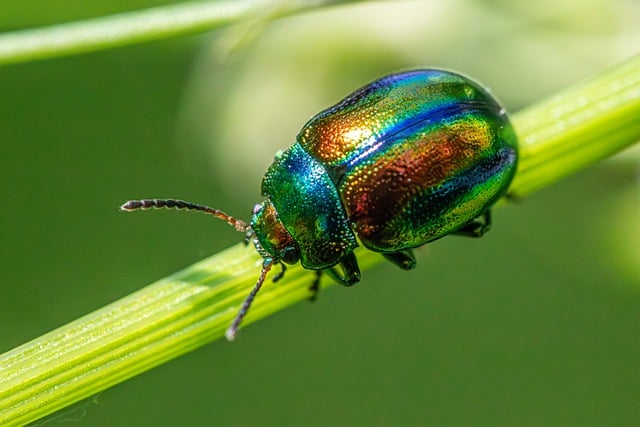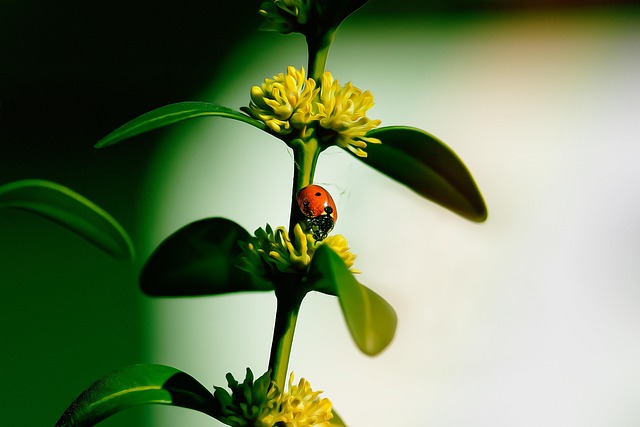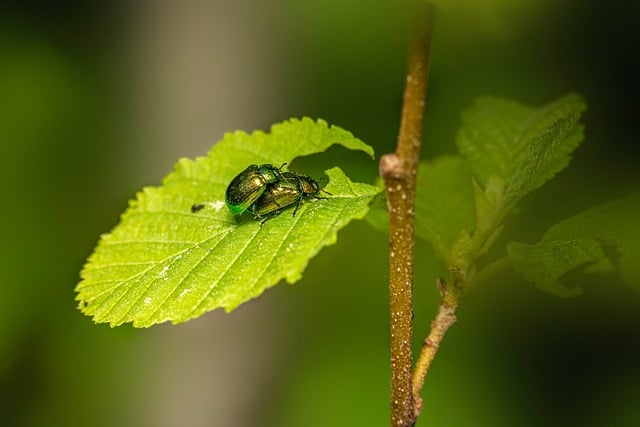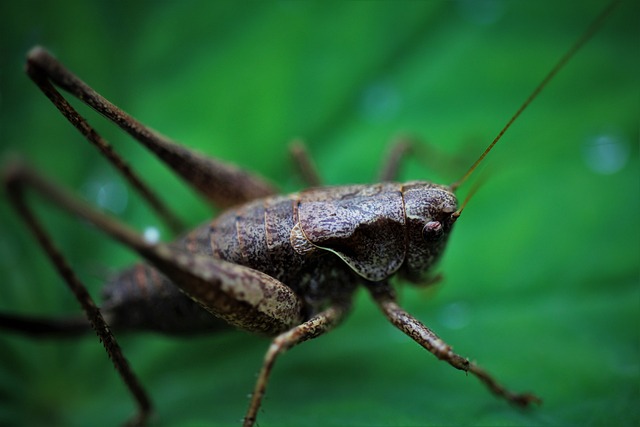In Castle Rock, Integrated Pest Management (IPM) is gaining popularity as an eco-friendly and holistic approach to vegetable garden protection. This method focuses on the entire ecosystem, avoiding sole reliance on killing pests, and instead promotes natural resistance through monitoring, cultural practices, biological control agents, and minimal use of safe chemical treatments. Sustainable pest management aligns with the community's demand for green practices, preserving ecological balance, improving produce quality, and benefiting both local farmers and consumers. Adopting IPM strategies provides an effective, step-by-step guide for homeowners to maintain healthy gardens while minimizing environmental impact.
“Discover the power of Integrated Pest Management (IPM) and its transformative effects on sustainable vegetable gardening in Castle Rock. This comprehensive guide explores an eco-friendly approach to pest control, offering a holistic solution for home gardeners. By understanding IPM principles, you’ll unlock effective strategies to protect your vegetables while preserving the local ecosystem. From identifying beneficial insects to implementing natural repellents, this article provides a step-by-step roadmap for successful sustainable pest management.”
- Understanding Integrated Pest Management (IPM) for Vegetable Gardens
- The Benefits of Sustainable Pest Control in Castle Rock
- Implementing IPM Strategies: A Step-by-Step Guide for Home Gardeners
Understanding Integrated Pest Management (IPM) for Vegetable Gardens

Integrated Pest Management (IPM) is a sustainable approach to pest control that’s gaining popularity among vegetable garden enthusiasts in Castle Rock and beyond. Unlike traditional methods, IPM focuses on the entire ecosystem within the garden, not just killing pests. By understanding the balance between plants, beneficial insects, and potential pests, gardeners can create a natural resistance to infestations. This holistic strategy involves monitoring for pest activity, using cultural practices like crop rotation and sanitation, and employing biological control agents and safe chemical treatments only when necessary.
In sustainable pest management for vegetable gardens, the goal is not eradication but rather effective population control. By encouraging the presence of good insects that feed on pests and implementing preventive measures, IPM minimizes the need for synthetic pesticides. This approach benefits both the garden’s ecosystem and those who consume its produce, ensuring a healthier, more eco-friendly growing environment in Castle Rock’s vibrant gardening community.
The Benefits of Sustainable Pest Control in Castle Rock

In Castle Rock, sustainable pest control offers a harmonious approach to protecting vegetable gardens, aligning with the growing demand for eco-friendly practices. This method focuses on minimizing the use of synthetic pesticides by leveraging natural predators, beneficial insects, and organic repellents. By embracing these strategies, local gardeners can effectively manage pests while preserving the ecological balance.
Sustainable pest management promotes a healthier environment, ensuring that harmful chemicals do not contaminate soil or water sources. It encourages biodiversity within gardens, fostering a balanced ecosystem where beneficial organisms thrive. As a result, vegetable gardens in Castle Rock can enjoy improved yield and quality, benefiting both local farmers and consumers who seek fresh, organic produce.
Implementing IPM Strategies: A Step-by-Step Guide for Home Gardeners

Implementing Integrated Pest Management (IPM) strategies is an effective, sustainable approach to protecting your vegetable garden in Castle Rock from pests. Here’s a simple step-by-step guide for homeowners:
1. Identify Pests and Their Behaviors: Start by learning which pests are common in your area and how they affect vegetables. Observe your plants regularly to identify any signs of damage, such as chewed leaves or holes in fruit. Understanding pest behavior helps you target specific issues with minimal harm to non-target organisms.
2. Monitor Your Garden: Regularly inspect your garden for any pest activity. Traps and sticky notes placed near vulnerable plants can help detect the presence of insects early on. Monitoring allows for timely intervention, preventing pest populations from reaching damaging levels.
3. Use Preventive Measures: Implement good gardening practices to deter pests naturally. For example, plant companion plants that repel pests or maintain proper spacing to reduce crowding and disease risk. Keep your garden clean by removing dead plant material regularly, as it can harbor pests and diseases.
4. Employ Cultural Controls: Utilize non-chemical methods like manual removal (picking off insects), using beneficial insects (e.g., ladybugs, lacewings) that feed on pests, or introducing natural predators to control pest populations. These biological controls are safe for the environment and effective in managing many garden pests.
5. Apply Natural Pesticides: If necessary, use organic or low-toxicity pesticides as a last resort. Options like neem oil, insecticidal soap, or mineral oils target specific pests while minimizing harm to beneficial insects. Always follow label instructions carefully and consider the environmental impact.
Integrated Pest Management (IPM) offers a holistic and sustainable approach to controlling pests in vegetable gardens, especially in Castle Rock. By combining cultural, biological, and chemical methods, IPM promotes a healthy garden ecosystem while minimizing the use of harmful chemicals. This article has provided a comprehensive guide through understanding IPM, its benefits for local environments, and practical steps to implement these strategies at home. Adopting sustainable pest management practices ensures the long-term productivity and ecological balance of vegetable gardens in Castle Rock.
